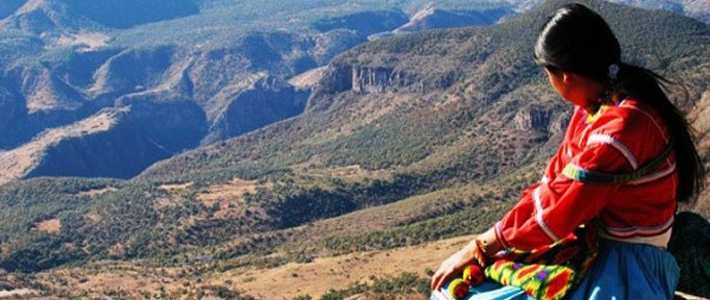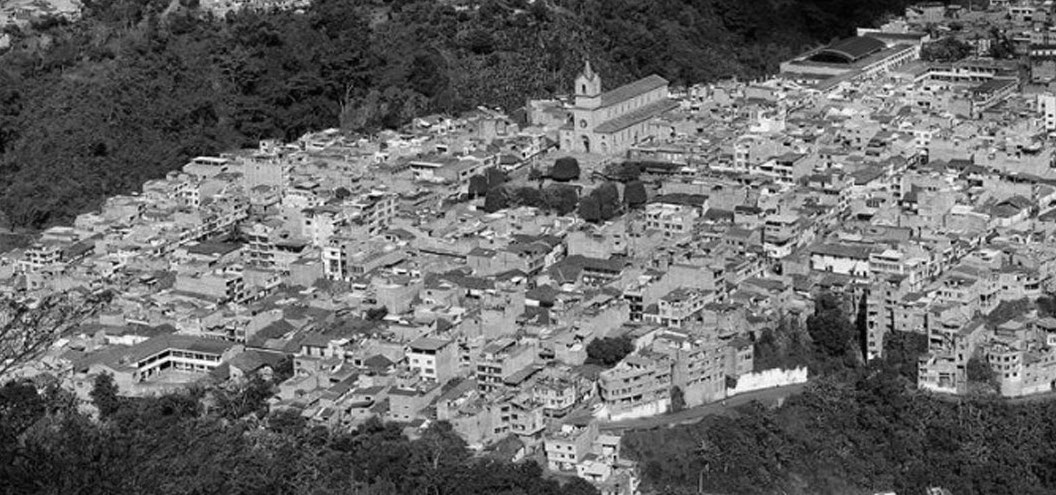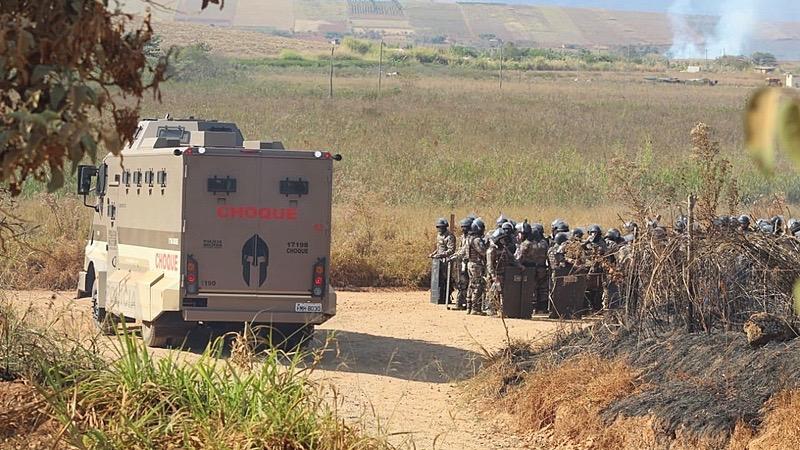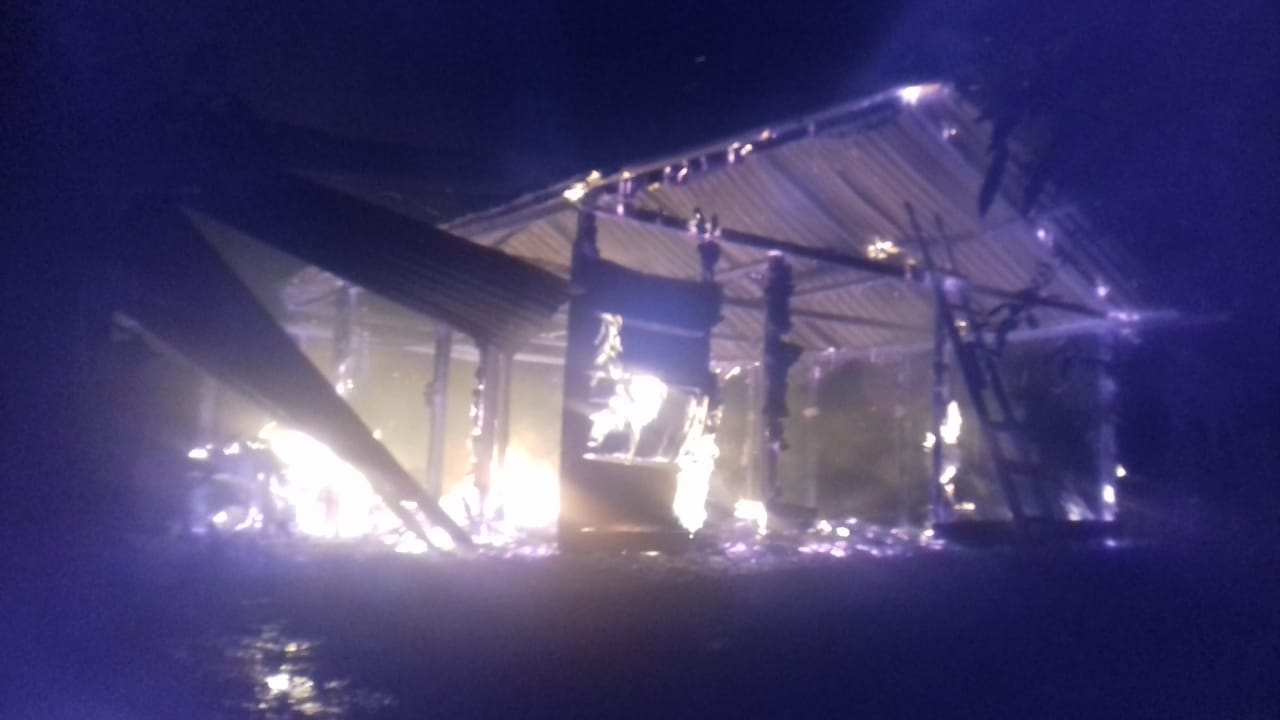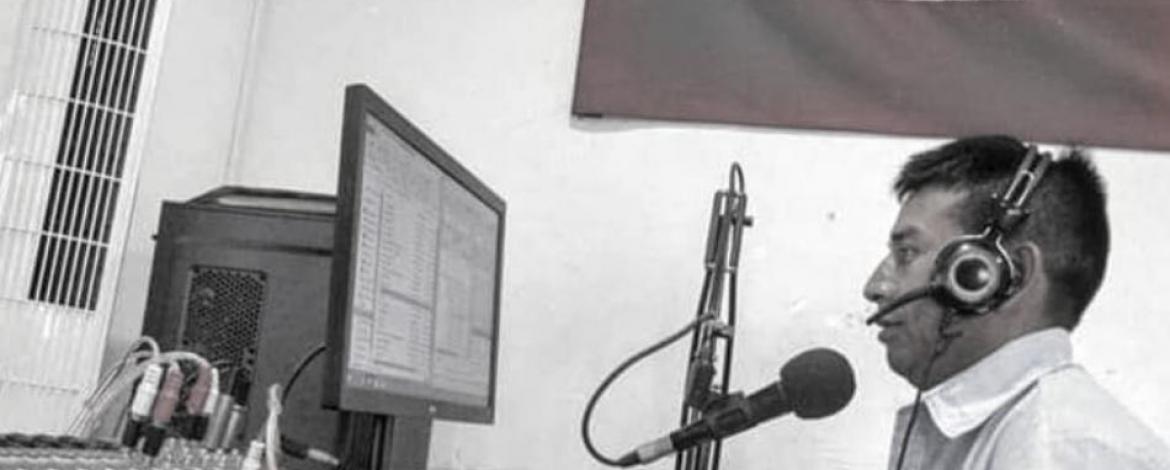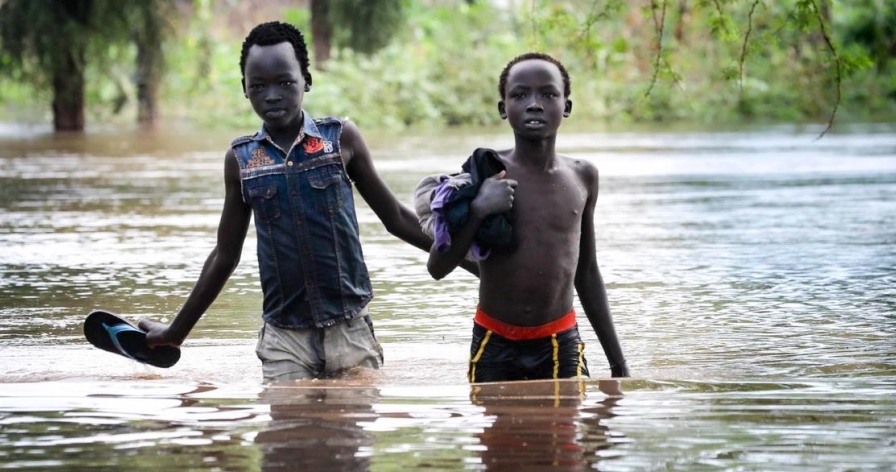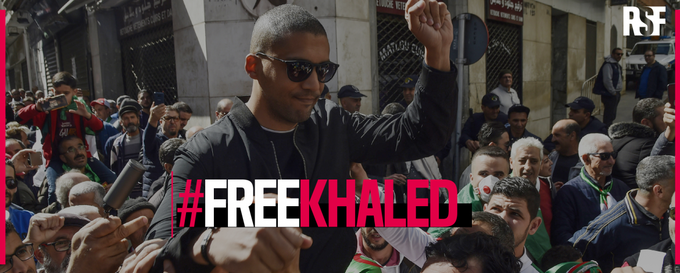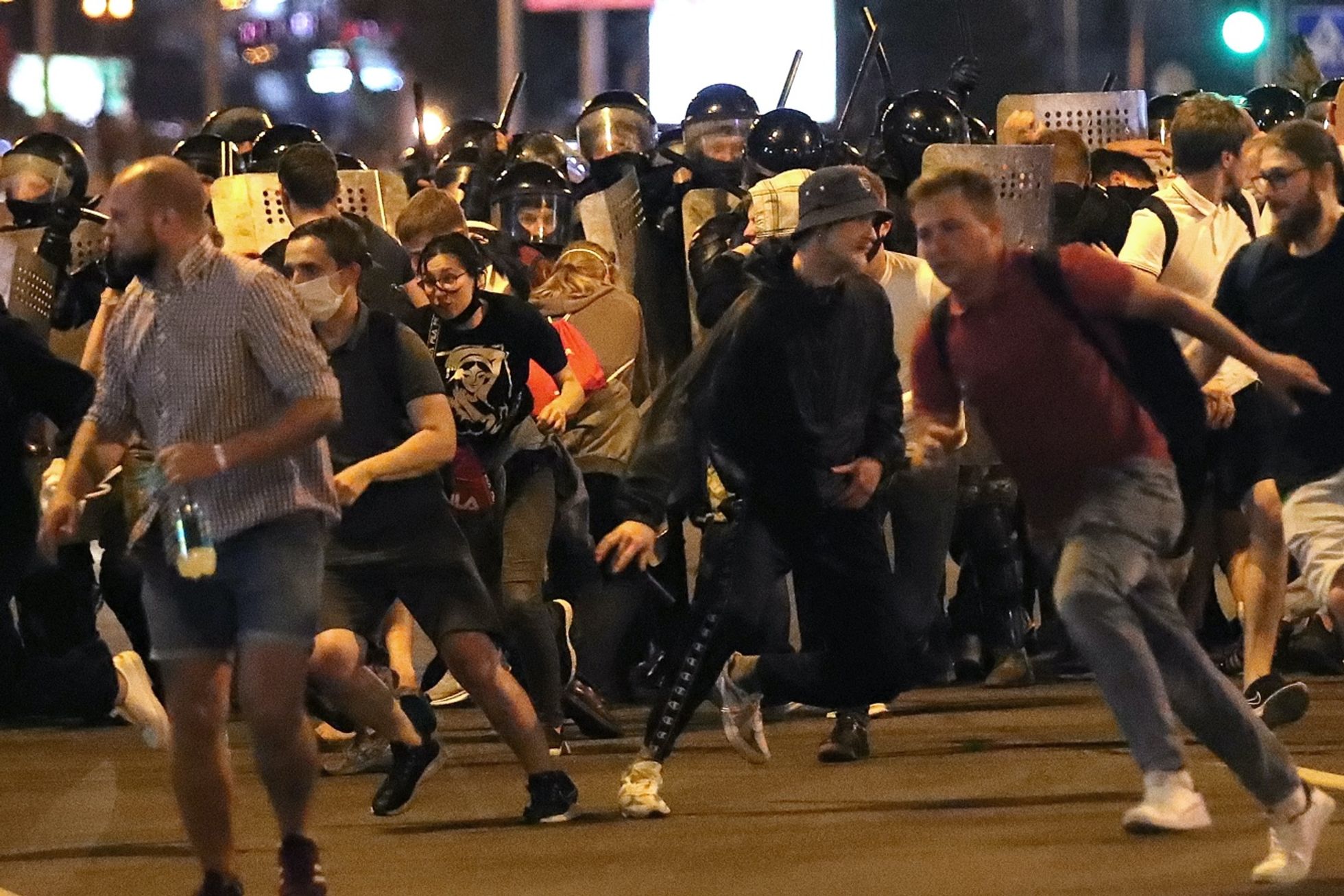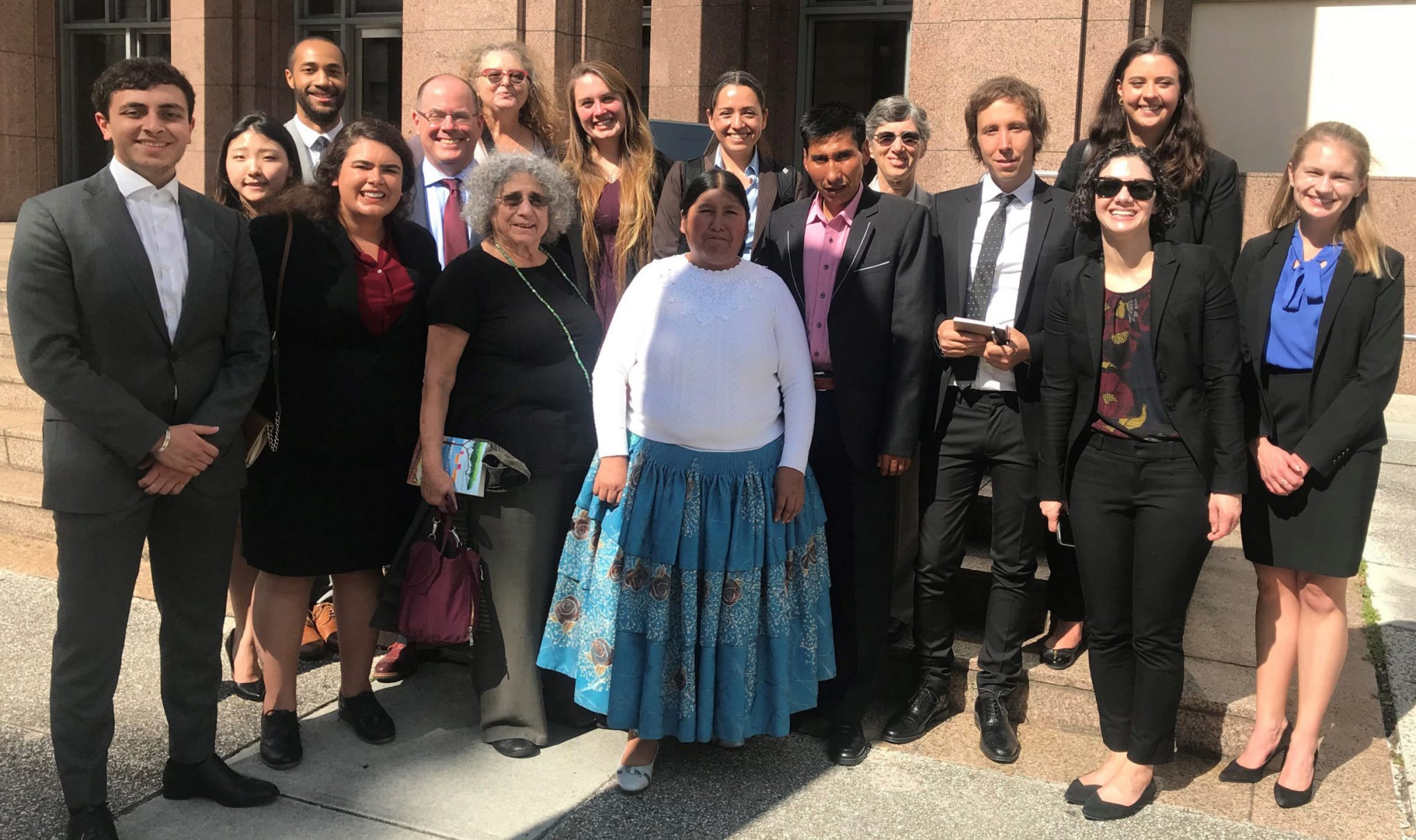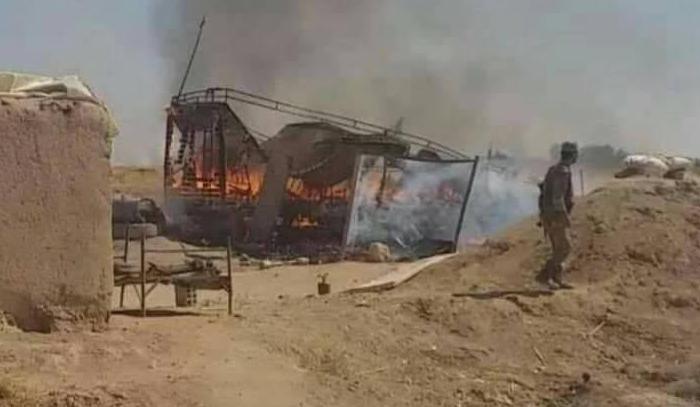
Syria: US troops clash with Assad regime forces
US troops clashed with an Assad regime unit in northeast Syria, an incident that illustrates the uneasy patchwork of power in the region. One regime soldier was reportedly killed and two wounded. Both Pentagon and Damascus accounts agreed the confrontation began when a joint convoy of US and Kurdish forces encountered a regime roadblock, but differed on which side fired first. The regime also claimed a US warplane fired on the roadblock, contrary to the Pentagon account. US-backed Kurdish forces have controlled much of the northeast since driving out the Islamic State last year. However, the regime, supported by Russia, also occupied part of the area as ISIS was defeated. (Photo: QalaatM via Twitter)



